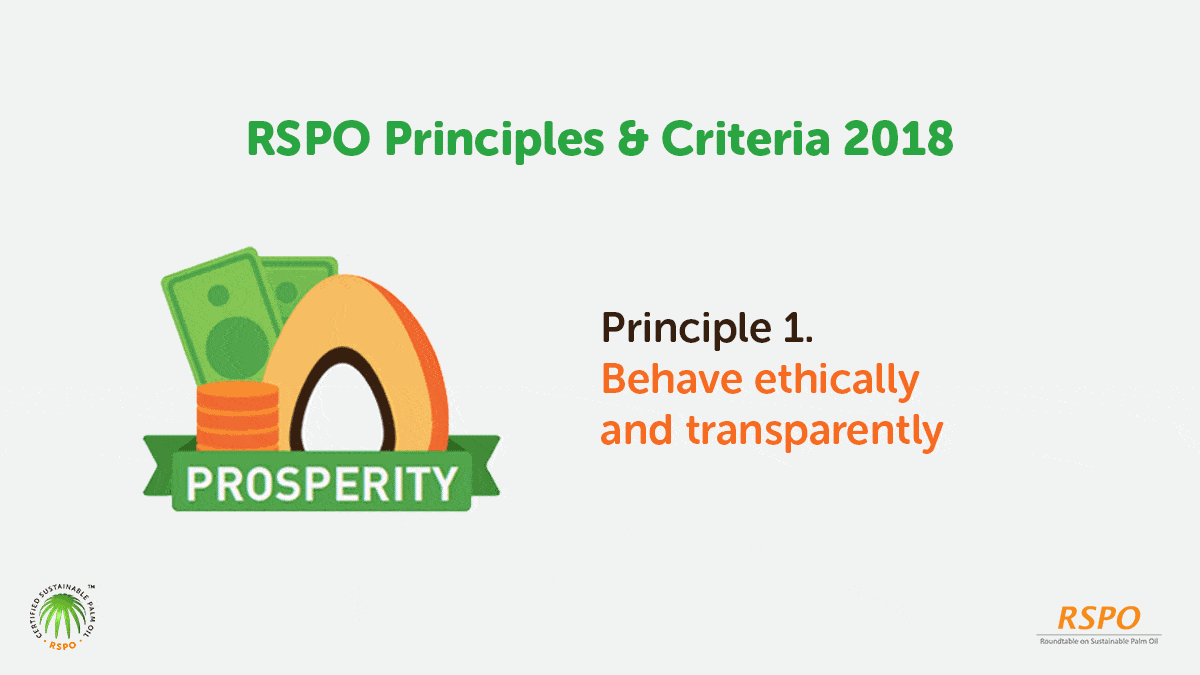The palm oil conversation
we should be having

Unless you were on a digital detox this weekend, it’s very likely you read about Iceland’s Christmas ad being banned from TV. The heart-breaking video, originally produced by Greenpeace, told the story of Rang-tan, an orangutan whose rainforest home was under threat from the expansion of unsustainable palm oil.
Iceland has been at the centre of the palm oil debate in recent months after announcing its decision to ban palm oil from own-brand products. The move was widely accepted by the public, but was met with criticism from many scientists and leading environmentalists working in the field who believe that simply banning palm oil could do more harm than good.
At Greenhouse, our mission is focused on driving environmental impact. We do not support the ban of a very important environmental message which highlights the devasting impact unsustainable palm oil can cause. However, we are asking the question – is a ban of palm oil the conversation we should be focusing on right now?
Why a boycott is not the solution
Palm oil is often singled out as the villain in the deforestation debate. However, according to the UN, 195 million hectares of forests were cleared between 1990 and 2015 – yet the expansion of palm oil plantations accounted for just 4%.
Before pointing to palm oil as the antagonist in this narrative, we should remember that palm oil is a crop – one that can be produced in an environmentally and socially responsible manner. Whilst the industry still has a long way to go, significant progress is being made – largely driven by the Roundtable on Sustainable Palm Oil (RSPO). The RSPO is a multi-stakeholder organisation that convenes players from all across the palm oil supply chain to strengthen standards and work towards a shared mission of making 100% sustainable palm oil the norm.
Instead of simply turning our backs on palm oil – which will only displace issues – we can make more impact by working together to make 100% sustainable palm oil a reality.
Here are 4 reasons why a boycott is not part of the solution:
- The oil from palm is the highest yielding vegetable oil, requiring up to 10 times less land compared to alternatives. Earlier this year, a report by IUCN found that saying no to palm oil would only move biodiversity loss to other crops.
- Six million people worldwide directly depend upon palm oil for their livelihoods.
- Boycotting palm oil results in fewer incentives for producers to adopt sustainable production methods.
- India and China are the world’s largest importers of palm oil – a boycott in Europe would be a drop in the ocean in terms of global demand, but conversations encouraging it are damaging the sustainability efforts that are being made.
Revision of the RSPO standard
This week, our team is in Sabah, Malaysia, to support the Roundtable on Sustainable Palm Oil (RSPO)’s 16th annual conference. This year’s event will be a tipping point in the sector as RSPO members will vote on a revised and strengthened set of Principles & Criteria for sustainable palm oil production (full programme ).
The RSPO is not perfect, but it is inclusive. Its strategy is to get all stakeholders on board and improve standards, as explained by CEO Darrel Webber: “It’s no use buying the perfect car if only a few can afford it. What we need is a bus: it’s ugly and slow, but it brings a lot more people along.”
To adapt to new challenges and changing landscapes, the RSPO Principles & Criteria are developed and revised every five years. As mentioned by Global Outreach and Engagement Director Stefano Savi in a recent piece, this revision of the standard “has been the largest and widest public consultation in the history of the RSPO”. Over 10,000 stakeholders across 13 countries and in 10 languages were involved in strengthening the standard, which will better protect ecosystems such as rainforests and peatlands, but also human and labour rights.
The new standard will be voted on Thursday at the RSPO General Assembly, and NGOs such as WWF, Orangutan Land Trust and HCS Approach are calling on members to ratify it.
Join the conversation using #RT16
This is a once-in-a-lifetime opportunity to increase focus on progress and be part of the palm oil solution – take part in conversations on Twitter using . Or contact us to hear more about how we support collaborative efforts to make supply chains more sustainable.
Update – 16th November 2018
Yesterday at the 15th General Assembly, RSPO members adopted the proposed new standard for sustainable palm oil production. This is a milestone in the industry as the standard includes no deforestation requirements through the implementation of the High Carbon Stock Approach. The P&C 2018 comes into effect immediately, with existing RSPO grower members given a one year transition period to implement the new standards. The adoption of the standard has been applauded by many stakeholders of the palm oil industry, including critics such as Greenpeace, SumOfUs and Richard Walker of Iceland Foods.




